I Talked To An Astrologer To Understand What's In Store For Us Ahead Of The Total Solar Eclipse, And Phew, I Don't Know If You’re Ready
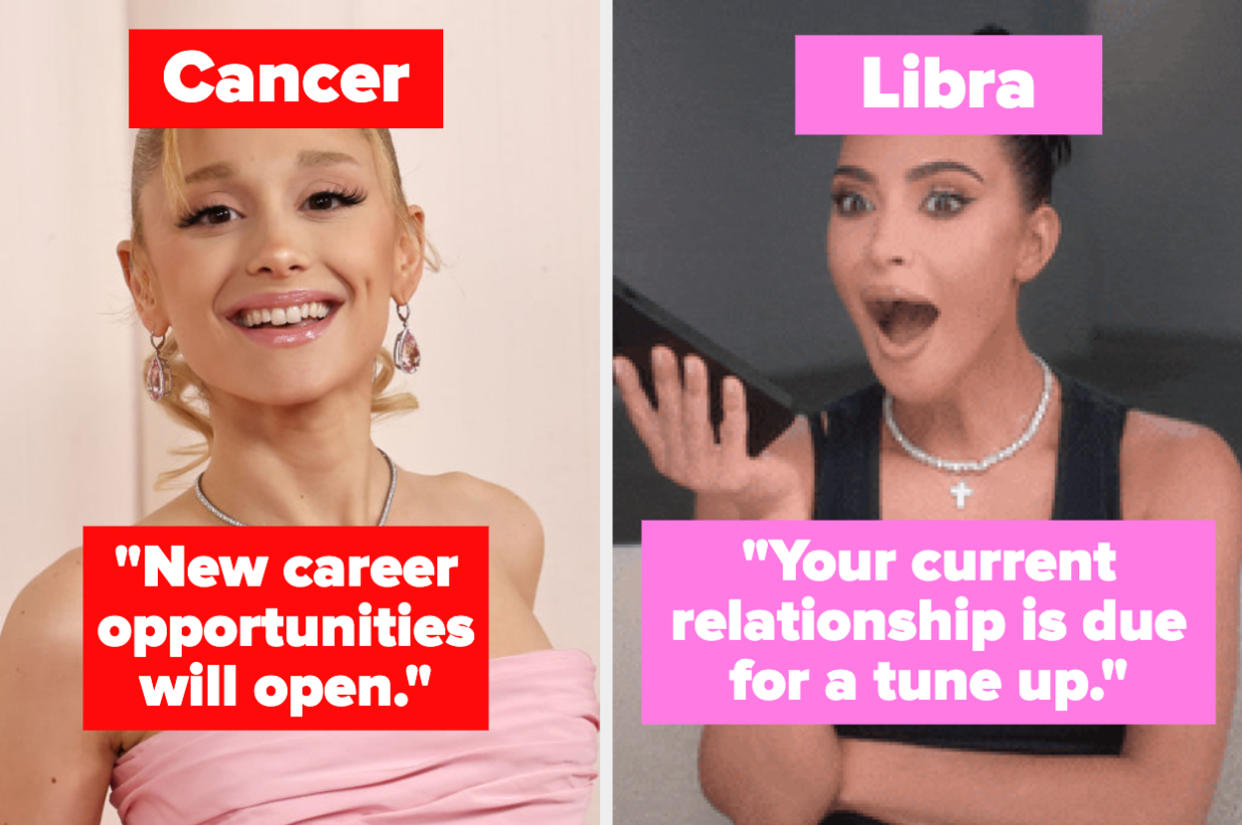
Astrology is kinda having a moment right now. In just a little over a month, SZA, Kacey Musgraves, and Ariana Grande all sang about their Saturn returns on their new records.

A "Saturn return" happens when Saturn returns to the same spot in the sky as when you were born. According to astrology, it's usually a time of reflection on all your choices thus far, and can serve as a bit of a wake-up call — SZA sang about Saturn changing her for the better, Ariana sang about waking up and changing her life, and Kacey sang about getting rid of bad habits and people.
Saturn returns happen every 27-30 years or so, which makes sense why SZA, Ari, and Kacey are reflecting on 'em a few years into their 30s (also being children of the 2010s millennial astrology boom).
Now, we're on the heels of a total solar eclipse next Monday, April 8th — and whether you're astrologically inclined or not, it's a big deal.
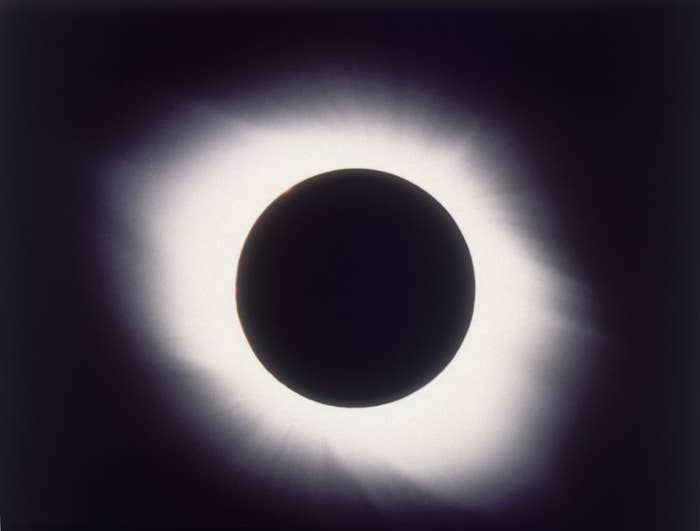
Solar eclipses happen when the sun, moon, and Earth line up. During a solar eclipse, the moon passes between the sun and Earth, blocking daylight for a short period on Earth. Four solar eclipses exist — total, partial, hybrid, and annular. Total eclipses happen when the moon completely covers the sun.
Solar eclipses are natural, visible phenomena that have fascinated humans since ancient history. According to NASA, the first recorded eclipse in human history may have been in 3340 B.C.E. in County Meath, Ireland. Since then, humans have constructed various supernatural and scientific explanations and reactions to these celestial events.
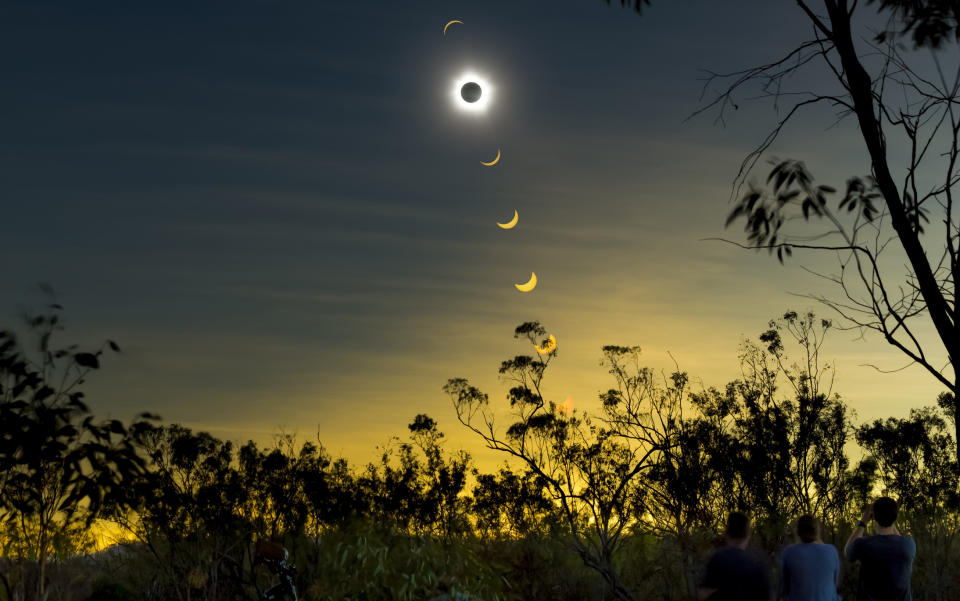
In ancient texts, eclipses were often feared and marked by creatures devouring the sun, such as dragons, frogs, snakes, and jaguars. Several ancient deaths of rulers occurred on solar eclipses, sparking fear that solar eclipses were bad omens for kings and rulers. Other indigenous cultures see them as a rebirth or rebalancing; some, like the Tahitians, view eclipses as an "amorous" encounter between the sun and moon (how romantic).
Eclipses have also aided scientists, like in 1919, when British astronomer and mathematician Sir Arthur Eddington tested Albert Einstein's theory of general relativity thanks to a solar eclipse. By taking images of stars near the sun during the eclipse, Eddington showed that gravity could bend light, as Einstein theorized.
OK, so wait — what is the deal with eclipses though? Why does it feel like they're always some "rare" occurrence, but they've happened before? Didn't we just have one in 2017?
Every time we have an eclipse, I hear someone say, “This won’t happen again for another 150 years,” but then the shit happens every year and a half.
— Jason, ex Inferis (@benedictsred) March 30, 2024
First, contrary to popular belief — this guy is (kinda) correct. Eclipses are not rare; they happen twice a year ~somewhere~ on Earth. However, seeing them in the same place on Earth IS rare, and total eclipses are less common. For example, the last total solar eclipse in the US happened in 2017, and the next one visible in the US won't be until August 2044.

And, this total eclipse (now cueing "Total Eclipse of the Heart") is particularly special, at least that's what Rebecca Gordon, a New York City astrologer, author, and astrology school founder tells me. So, if you're like me and dabble with your birth chart occasionally, Rebecca helped break down what this total solar eclipse means, why it's special, and what it might mean for you.

So, Rebecca, we know what a solar eclipse is, but astrologically speaking, what's their significance?
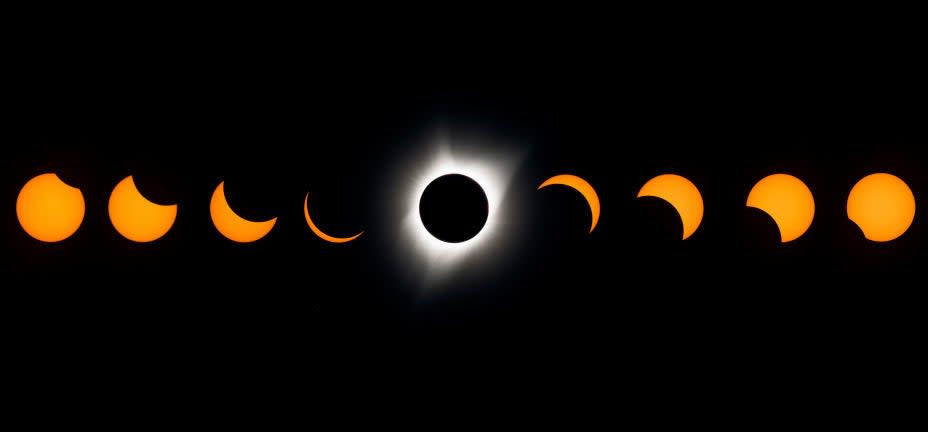
Rebecca Gordon: "In astrology, a total solar eclipse creates a breakthrough in your life and often an expedited evolution. Eclipses often bring a dramatic course correction in our lives such as the beginning of a new relationship, a job, or perhaps a move to a new location or the beginning of a new lifestyle. Usually, they happen in areas where we have already ‘moved on’ though we are still ‘going through the old motions.' The eclipse is a wake-up call for your body to catch up to where your soul is. Sometimes, we hang on to old patterns out of safety and fear and eclipses break us out into the vast unknown."
Ok, I kinda love that. I feel like we all need a wake-up call from time to time. How does a solar eclipse differ from a lunar eclipse?
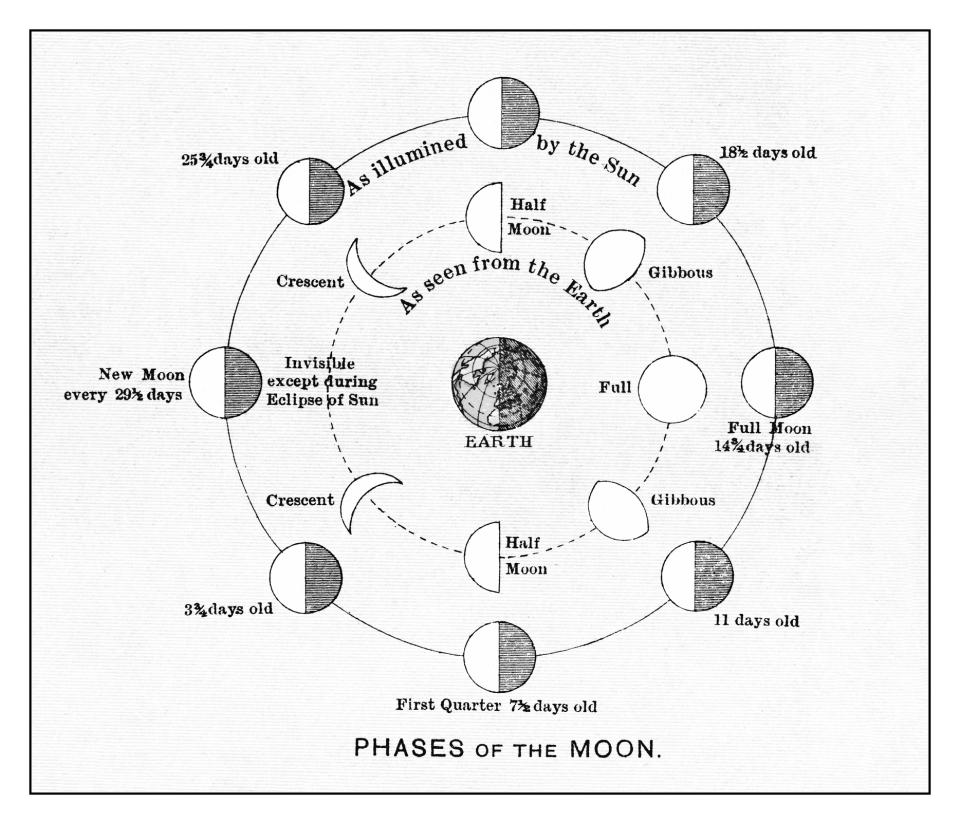
Rebecca Gordon: "Every month, there is a new moon, followed by a full moon two weeks later, another new moon two weeks after that, and so on. A solar eclipse is essentially an extreme version of a new moon — it’s got the power of 10 new moons all rolled into one. The impact of a solar eclipse will ring out for the entire year, while a new moon sets the tone for that month. It can feel like many years compressed into a month, and that is called eclipse season."
Didn't we just have a lunar eclipse?
Rebecca Gordon: "Yes, we had a partial lunar eclipse on March 25, 2024. Eclipses come in pairs, so whenever there is a solar eclipse, there is also a lunar eclipse either two weeks after or two weeks prior. Lunar eclipses are essentially 10x-powered versions of full moons. Full moons signify endings. So, a lunar eclipse will show you where you walked across the bridge, and now the bridge is in the water. There is no turning back. Lunar eclipses show patterns in your life that must come to an end. This could mean letting go of a habit, a relationship, a job, or anything else."
Ok, and if eclipses mark a big breakthrough moment, it kinda makes sense then that they have reportedly halted war, led to scientific discoveries, and occurred alongside historical events, such as the birth and death of kings, queens, and rulers. So, how do you think the total solar eclipse on April 8 might impact us?
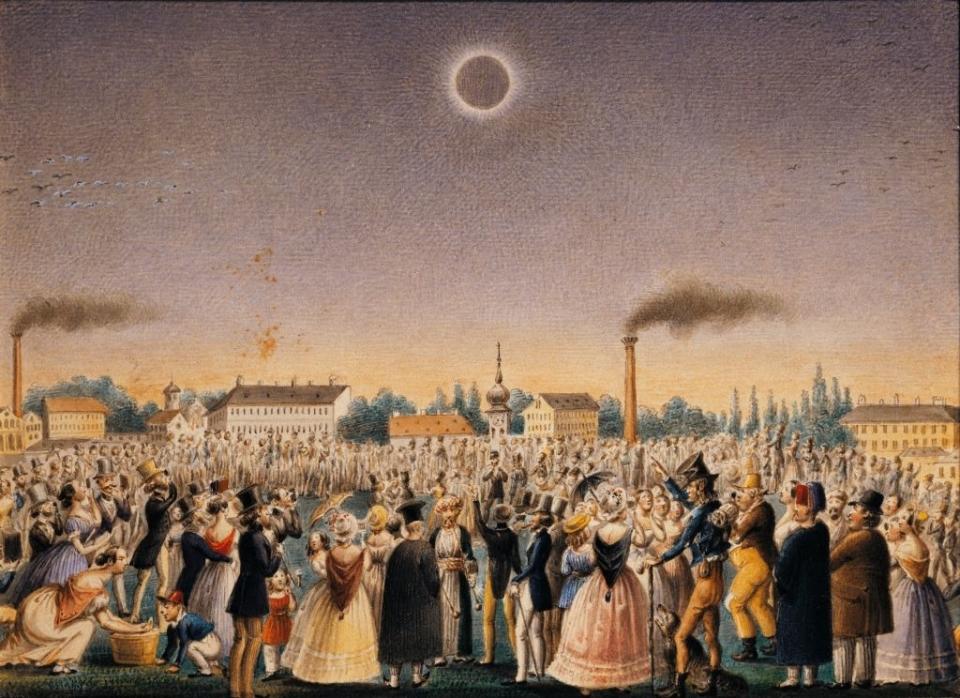
Rebecca Gordon: "Eclipses have been known to coincide with major events that changed history. This eclipse is no exception. And because this one is in the fire sign of Aries, the message will be loud and clear.
This solar eclipse happens on April 8, 2024, though the impact will reverberate for the entire year and perhaps many more. Eclipses send shockwaves into the future, so pay special attention to the opportunities and conversations entering your life within a month (plus or minus April 8). New ways of living begin."
Eclipses have also evoked various meanings for different cultures throughout history — for some fear, for others rebirth, change, and growth. But it seems like an eclipse is kinda what you make it. Is a solar eclipse something to be feared, or embraced? How should we approach eclipse season?
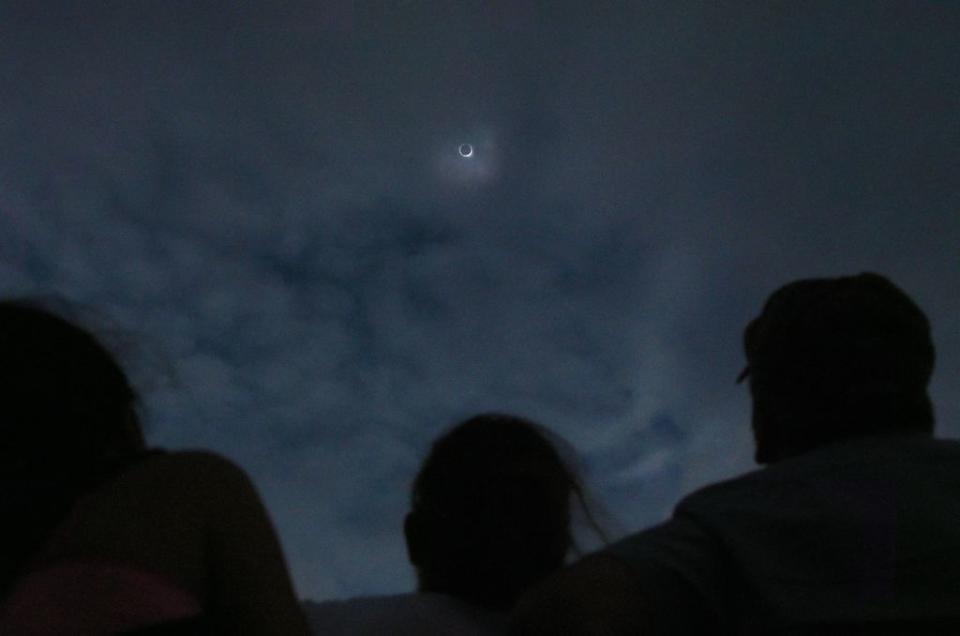
Rebecca Gordon: "In the ancient world, eclipses were feared and seen as omens of sudden change, which is not far from reality. It is crucial that you have extra space and time in your schedule around eclipses as things will fly in from left field. You will need room to respond to these new opportunities. Get more rest, take more time out for meditation, go on walks, and give yourself room to process these beginnings and endings.
If you don't know what is ready to change in your life, you may consider what you have outgrown, though you are still holding onto. Eclipse season can feel scary because it pushes us into the unknown."
Rebecca compared the eclipse season to a faltering radio broadcast. She said, "The sun is like a radio station that broadcasts light and encoded information to Earth. When the moon crosses the sun during an eclipse, the radio station shuts down. By the end of the eclipse, that old station can no longer be found." It's like your life changes a station, and you must welcome the new music, despite it being unknown.
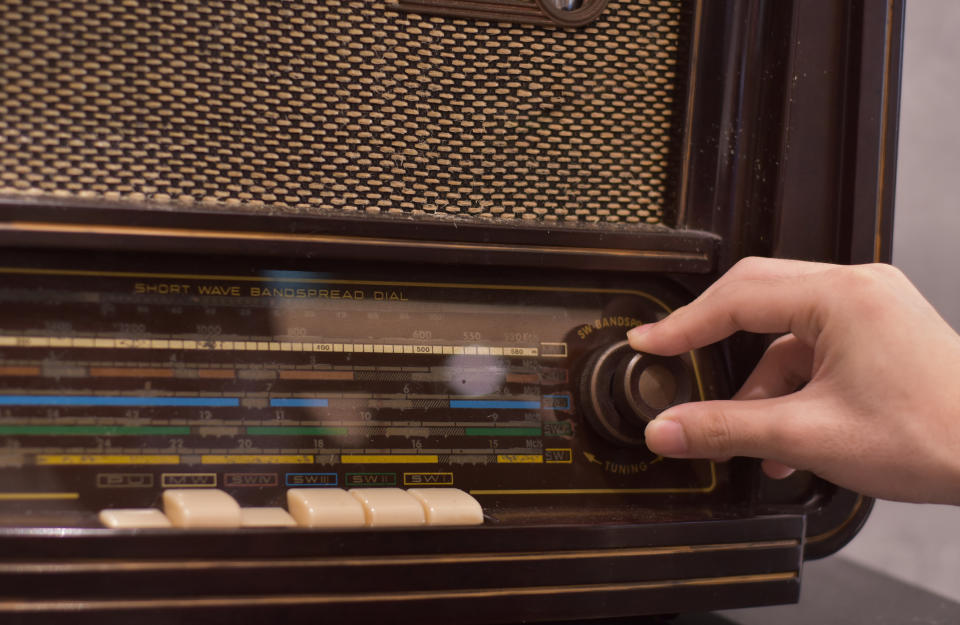
"It is best for us to approach the eclipse with a sense of curiosity, wonder, and openness to a new way of living," Rebecca told BuzzFeed.
So, I have to ask about myself – while I'm astro-curious, I certainly am no guru. After hearing about “Saturn returns” buzzing in popular music right now, I thought ‘Huh, maybe I am going through my Saturn return too,' because things just feel a little out of whack. But I'm not in my Saturn return season. Could it be that the eclipse has something to do with it instead?
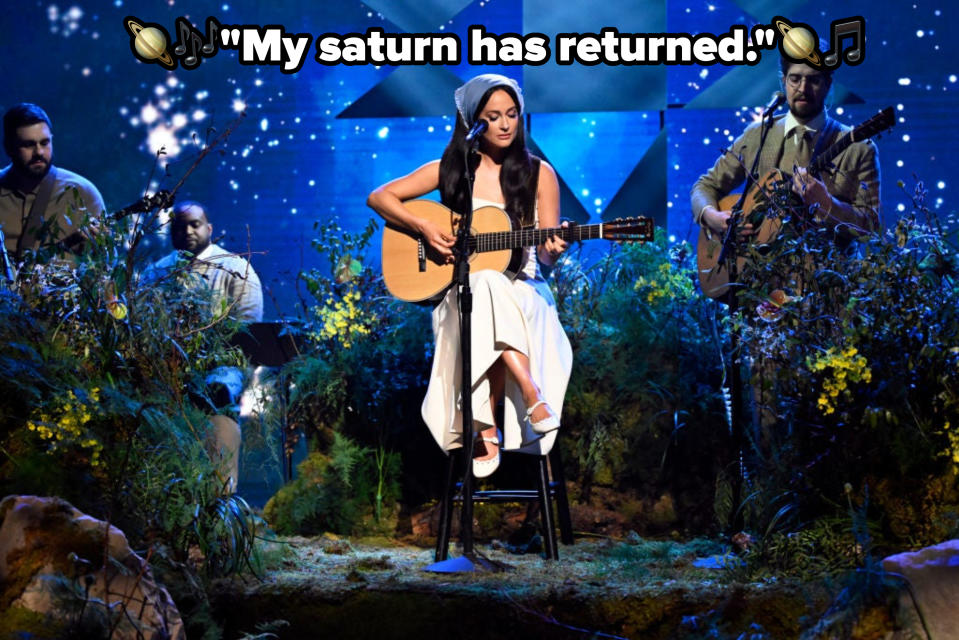
Rebecca Gordon: "Yes, based on your chart, you are not quite in your Saturn return yet, though you are directly in the solar eclipse line of fire. This eclipse occurs in the sky at exactly 19 degrees of Aries, and you happen to have a planet (Saturn) at 19 degrees of Aries. What are the chances! Also, this solar eclipse happens to be in your house of career meaning that April will put a lot of attention on your public persona and conversations now will turn the course of your life. This is a good thing, as it shines a light on you, revealing new talents and potential."
Oooh, I'm excited by this. All this time, I thought I was in my Saturn return, but really, I'm rather poignantly in the throes of eclipse season (at exactly 19 degrees of Aries!!!). Ok, enough about me though, let's talk about everyone else. What might the eclipse mean for different zodiac signs?
Alright, got it? Excited, nervous, scared, skeptical? Don't worry — according to Rebecca, it's natural. She said, "Eclipses force us to evolve beyond our comfort zone, and even if you resist, nature has a way."
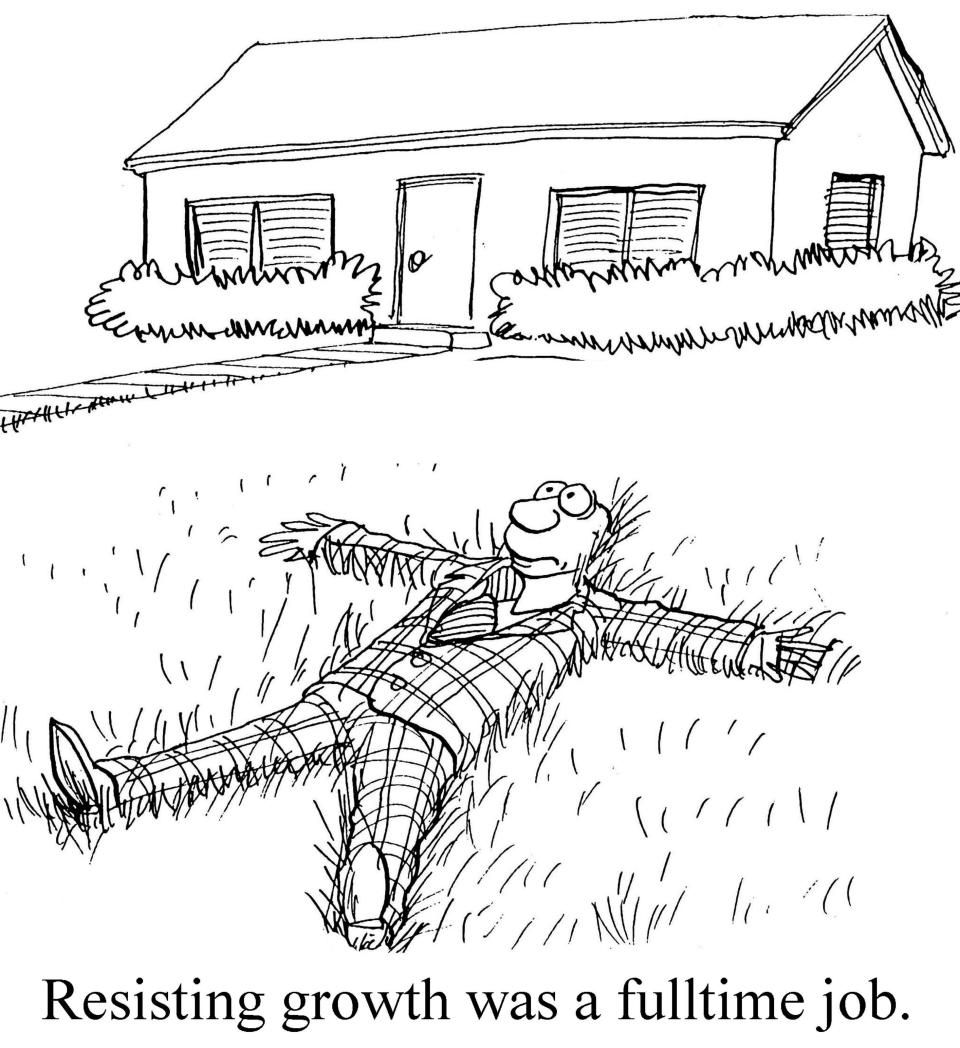
Rebecca compared the process of change that might come about with an eclipse to that of a baby bird cracking out of its shell (and I kinda love that). She said, "There is a point when a baby bird cracks open its shell when it becomes too confining. This is not a choice, but an evolution. Eclipses speed up this process tenfold, so I would encourage you to be more curious about new directions and loosen the grip on what you know and have always done. Change is inevitable here, and it’s a lot more painful if we fight it. We may as well make room with open arms."
Alright, phew. Changes, reflections, and hard truths. Accept it with open arms. Got it. I think what I appreciate about astrology, is that even if you're like, "This is BS!," there's some truth in all these platitudes. Whether you believe in any of the spiritual interpretations of the eclipse or not, we can all take time to reflect on some truths we've been ignoring. Perhaps the eclipse season is just that perfect moment to do so.
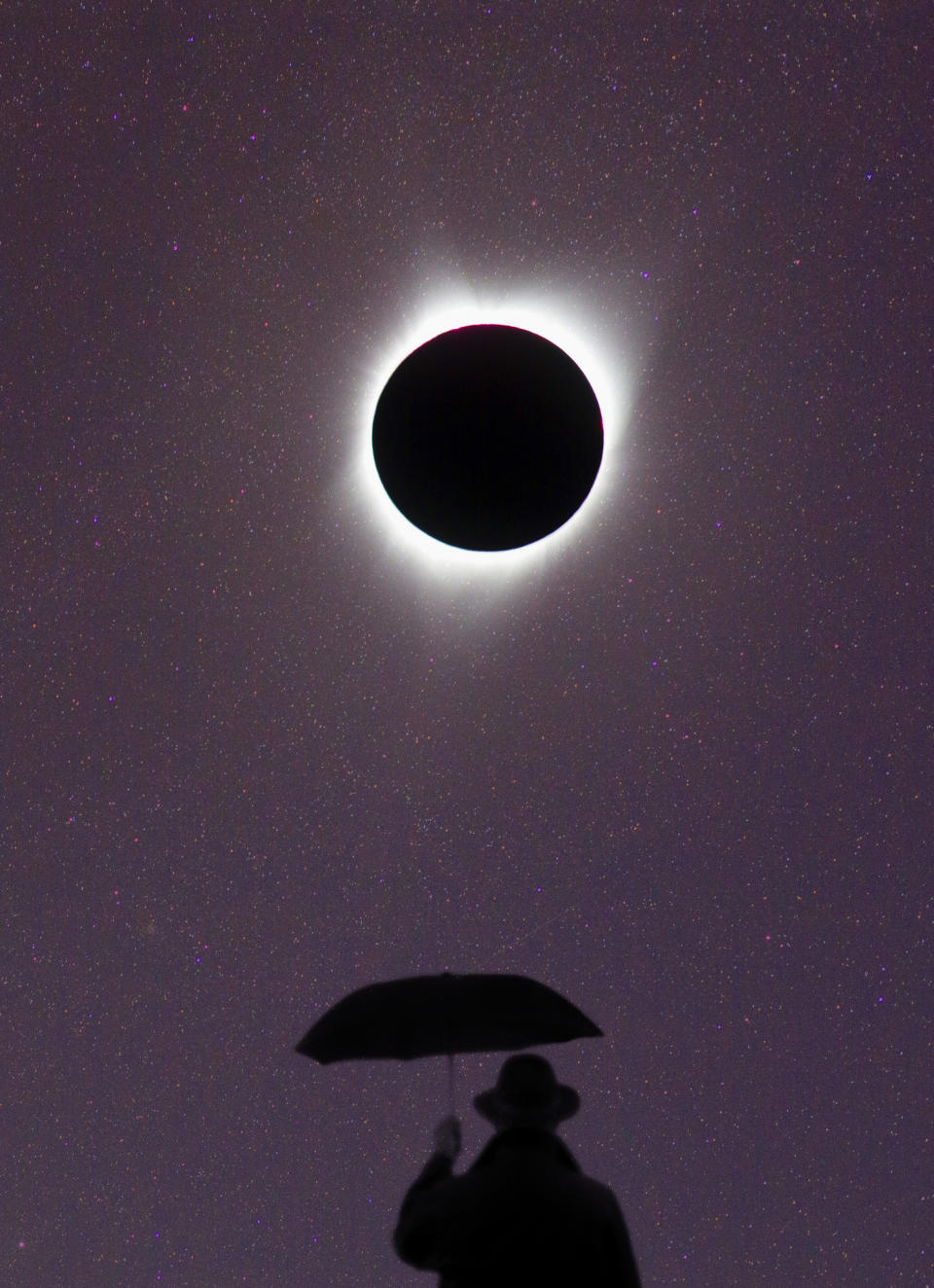
And look, while I just rattled off a whole convo with an astrologer, I'm a skeptic too. But I find beauty in the fact that ancient to modern cultures, tribes, and the present-day fortune cookie BuzzFeed quiz astrologists have all found connections through the stars, wondered about their existence, and questioned their meaning to our Earth.
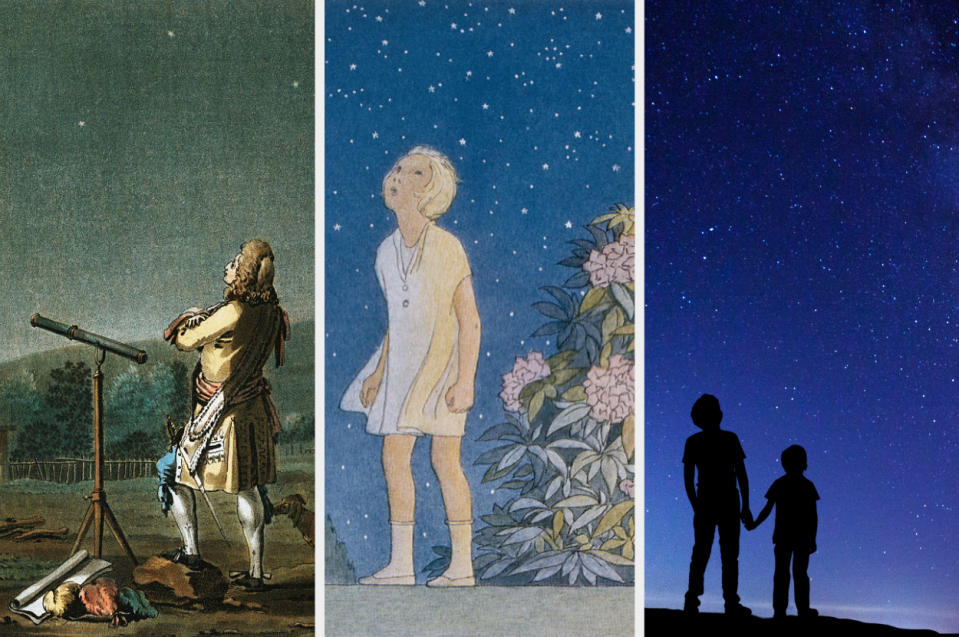
Not to mention, no matter your take on the stars — from tracking time, dictating agriculture, and aiding in navigation, they definitely have had an important purpose for us Earthlings, even if you're less confident about their spiritual leanings.
And, to give the celestial some more credit, there's some wacky sh*t. Like, Rebecca told me about all the events that just so happened to occur during eclipse season, like women's right to vote (1919), the founding of the UN (1945), and the passing of the US Civil Rights Act in 1964. And apparently, there's a thing with the Royals and eclipses (soooo many have born and died on them, like what?).

To the skeptics, Rebecca told BuzzFeed, "Astrology is essentially just the correlation between astronomical events and life on Earth. Astrologers are skilled in pattern recognition. I feel it’s important to look at data and facts when it comes to eclipses, as these are some of the most striking correlations between celestial events and human experiences."
So there you have it! Do with the total solar eclipse season as you want. Take it, leave it, throw it in the trash, whatever — you'll have to face those hard truths one way or another!
For the astrologically inclined, you can keep up with Rebecca Gordon on Instagram and her website. And, if you're lookin' to understand your birth chart better, you can use her free guide.


